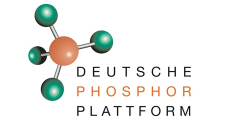RISE Foundation has launched a new report
The RISE Foundation has launched a new report which will be an important contribution to the growing debate on the future of EU livestock production and consumption in Europe named ‚What is the Safe Operating Space for EU livestock?‘.
This report, co-authored by Allan Buckwell and Elisabet Nadeu, provides a comprehensive overview of the benefits and impacts of livestock on the environment and human health and calls upon policy makers to use the range of policy tools at their disposal to support the livestock sector through a transition that is considered necessary and inevitable.
The full report can be downloaded by following the link below. Read an abstract here:
Livestock contribute important benefits to society: nutrients for health, they utilise pastureland which is otherwise unavailable for food production, they can help recycle food by-products and nutrients, shape cultural landscapes, and can help steward loved ecosystems. They provide jobs, enjoyment and psychic benefits. BUT, livestock also contribute considerable harms to health, environment and welfare. Europeans are significantly and wastefully over-consuming animal protein, and some products are directly dangerous to health. Livestock are significant direct and indirect emitters of greenhouse gases and ammonia to the air and Nitrogen and Phosphorus into water. Animal production is contributing to anti-microbial resistance and spread of zoonoses, and some animal production is associated with unacceptable animal welfare practices. On top of this, there are multiple and complex interactions between these benefits and harms of livestock.
Acknowledging the challenging nature of these issues, the RISE report seeks an approach which can define and quantify a safe operating space (SOS) for EU livestock. Preliminary analysis of EU data focusing especially on human diet and pasture utilisation and on greenhouse gases and nutrient leakage to the environment suggests that EU livestock are not in a safe operating space. The SOS is at a level of consumption and production considerably lower, maybe 40% to 60% lower, than current levels.
To move to a safe operating space strong action is required both on consumption and production. There is considerable scope for innovation to reduce negative impacts by better resource efficiency, breeding, housing, nutrition, manure management and changing density and concentration of production. But the assessment is that production actions alone cannot offer sufficient rates of efficiency improvement to achieve existing standards for GHG, other pollutants and welfare. Therefore, consumption must adjust. This can be achieved by changing the mix of products, systems and species, by substituting alternative natural protein (insects, algal) and analogues (cultured protein), and ultimately by changing to plant protein and simply lowering protein intake to that required for health – which, of course, differs greatly according to age, occupation and other factors).
Collective policy measures are required to move both production and consumption to its SOS. However, strategic EU food, health and environmental policy has not yet acknowledged that such change is required. A high-level formal enquiry should be initiated to demonstrate this need. This should be asked to propose consumer-focussed measures needed to discourage consumption harmful to health and environment and to encourage consumption beneficial to health and environment. Meanwhile,agricultural policy should more actively encourage structural change in farming to improve resource efficiency, and to reduce leakage and waste, and environmental policy must enforce existing regulation and directives. Research is required to better characterise the safe operating space and to find the indicators and guides to help farmers reduce harmful effects of livestock production.
As one of the largest agricultural trading blocs in the world, and with high levels of livestock consumption and production, the EU can help discover the path to the SOS, and benefit from first-mover advantage.
Buckwell, A. and Nadeu, E. 2018. What is the Safe Operating Space for EU Livestock? RISE Foundation, Brussels.



